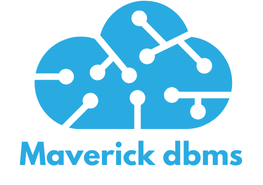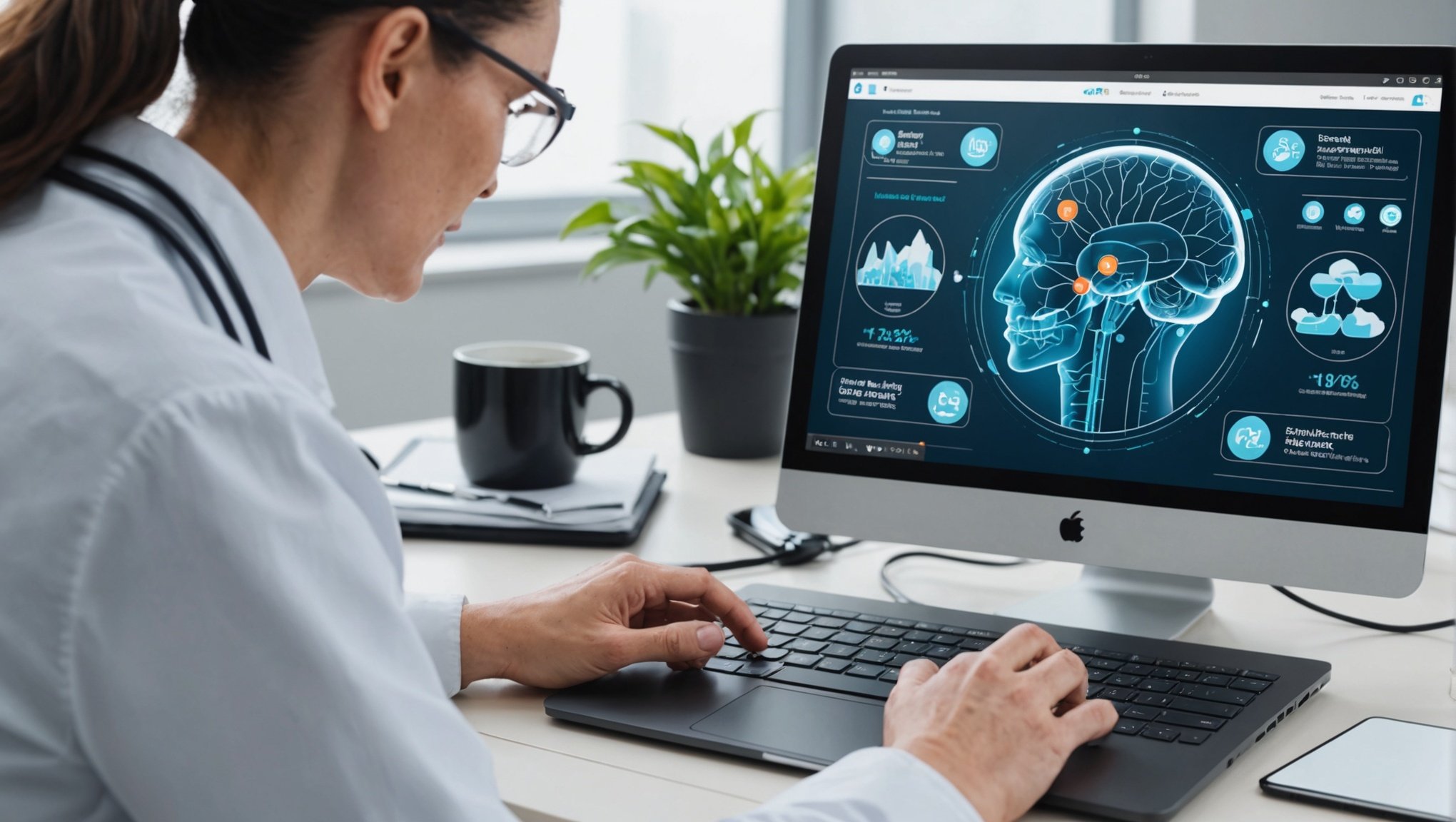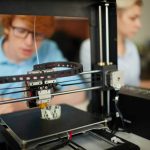Remote patient monitoring is transforming healthcare, and AI-powered solutions are at the forefront of this revolution. These technologies enhance patient care by enabling continuous health monitoring, timely interventions, and personalized treatment plans. Discover how integrating AI can improve efficiency, reduce hospital visits, and empower patients in managing their health. This innovative approach not only addresses healthcare challenges but also unlocks a future where personalized care is accessible to all. Join us in exploring the remarkable potential of AI in remote patient monitoring.
Overview of Remote Patient Monitoring
Remote Patient Monitoring (RPM) is a transformative approach in healthcare, enabling continuous tracking of patient health data through telehealth technologies. This method allows healthcare providers to monitor patients' vital signs and other pertinent health metrics from a distance, enhancing patient care by facilitating timely interventions.
Also to read : How to utilize AI for enhancing image and video quality in digital media?
Current statistics reveal a significant increase in the adoption of remote monitoring solutions. According to recent studies, approximately 88% of healthcare organizations have implemented or are planning to implement RPM systems. This surge is driven by the need for more efficient healthcare delivery and the growing acceptance of telehealth as a viable alternative to traditional methods.
Traditional patient monitoring often requires in-person visits and manual data collection, which can be both time-consuming and costly. In contrast, remote solutions offer a more streamlined process. They utilize wearable devices and mobile applications to gather data, reducing the need for frequent hospital visits. This not only improves patient care but also alleviates the burden on healthcare facilities.
Also read : Unlocking the Future: Utilizing AI to Revolutionize Predictive Maintenance in Aerospace Engineering
Benefits of RPM
- Continuous healthcare monitoring
- Enhanced patient care through timely data
- Reduced need for in-person visits
- Cost-effective solution for providers and patients
As RPM continues to evolve, it holds the promise of revolutionizing telehealth and patient care, making healthcare more accessible and efficient.
The Role of AI in Remote Patient Monitoring
Leveraging technology to transform healthcare delivery
Artificial Intelligence (AI) is revolutionizing remote patient monitoring by enhancing data accuracy and efficiency. By employing machine learning algorithms, AI systems can analyze vast amounts of patient data swiftly, identifying patterns that may not be evident to human observers. This capability allows for more informed decisions regarding patient care.
Enhancing Data Analysis
AI technologies, particularly machine learning, are instrumental in processing complex datasets. These algorithms learn from historical data, improving their predictive capabilities over time. This means they can anticipate potential health issues before they become critical, allowing for timely interventions.
Predictive Analytics
The use of predictive analytics in remote patient monitoring is a game-changer. It enables healthcare providers to forecast patient outcomes, tailoring treatment plans to individual needs. This proactive approach not only improves patient health but also optimizes resource allocation within healthcare facilities.
- AI in Healthcare: Enhances data processing
- Machine Learning: Learns from historical data
- Predictive Analytics: Forecasts patient outcomes
By integrating AI into remote patient monitoring, healthcare systems can deliver more personalized and effective care. This technological advancement holds the promise of significantly improving patient outcomes and streamlining healthcare operations.
Innovative AI Technologies Transforming Remote Monitoring
Exploring the intersection of AI and healthcare
Wearable Devices and AI Integration
Wearable devices are at the forefront of transforming remote patient monitoring. These devices, embedded with AI technologies, provide continuous health data, such as heart rate and activity levels. By integrating AI, they offer real-time insights, alerting healthcare providers to potential issues promptly. For instance, smartwatches can detect irregular heart rhythms, prompting early interventions.
Mobile Health Applications
Health apps utilizing AI are revolutionizing patient engagement. These applications collect data from wearables and analyze it using AI algorithms. This allows for personalized health recommendations and timely alerts, enhancing patient care. Apps like MyFitnessPal and Apple Health are examples of how AI-driven insights can motivate users to make healthier lifestyle choices.
Case Studies of AI Innovations
Several case studies highlight the impact of innovative AI technologies in healthcare. For example, the use of AI-powered wearable devices in cardiac care has shown a 30% reduction in hospital readmissions. Similarly, AI-driven health apps have improved medication adherence by 20%.
- Wearable Devices: Continuous monitoring
- AI Technologies: Real-time data analysis
- Health Apps: Personalized recommendations
These AI technologies are not only enhancing patient outcomes but also streamlining healthcare processes, making them indispensable tools in modern medicine.
Benefits of AI-Powered Remote Patient Monitoring
Exploring the advantages of technology-driven healthcare solutions
Improved Patient Engagement
AI-powered remote patient monitoring significantly enhances patient engagement. By providing real-time feedback and personalized health insights, patients are more likely to adhere to their treatment plans. This increased involvement leads to better health outcomes and empowers individuals to take control of their health journey. Patients receive timely reminders for medication and appointments, ensuring consistent adherence.
Cost-Effectiveness
The cost-effectiveness of AI-powered systems benefits both healthcare providers and patients. By reducing the need for frequent hospital visits, these technologies lower healthcare costs. Providers can allocate resources more efficiently, focusing on critical cases. This approach not only saves money but also optimizes healthcare delivery, making it more sustainable.
Early Detection of Health Issues
The enhanced capability for early detection of health issues is a standout feature of AI-powered remote patient monitoring. By analyzing data continuously, AI systems can identify potential health problems before they escalate. This proactive approach allows for timely interventions, preventing complications and improving patient outcomes.
- Patient Engagement: Increased adherence
- Cost-Effectiveness: Reduced hospital visits
- Early Detection: Timely interventions
These benefits underscore the transformative impact of AI-powered remote patient monitoring in modern healthcare, fostering a more efficient and patient-centered approach.
Challenges in Integrating AI Solutions
Navigating the complexities of AI integration in healthcare
Data Privacy Concerns
Ensuring data privacy in AI solutions is a significant challenge. Healthcare systems must comply with strict regulatory standards like HIPAA. This involves safeguarding patient information while utilizing AI technologies. Balancing innovation with regulatory compliance can be difficult, as systems must be both secure and efficient.
Technical Barriers
Integrating AI into healthcare systems presents numerous technical barriers. These include compatibility issues with existing infrastructure and the need for specialized skills to manage AI systems. The complexity of AI algorithms requires robust computing resources, which can strain current IT capacities. Overcoming these barriers is essential for successful AI implementation.
Strategies to Overcome Integration Challenges
- Data Privacy: Implement advanced encryption methods
- Technical Barriers: Invest in scalable infrastructure
- Regulatory Compliance: Regular audits and updates
Adopting a strategic approach can help mitigate the challenges of AI integration. By focusing on data privacy and addressing technical barriers, healthcare providers can better navigate the complexities of incorporating AI into their systems. This proactive approach fosters a more seamless transition, ensuring that AI technologies enhance rather than hinder healthcare delivery.
Case Studies of Successful AI Implementations
Exploring real-world applications and their impact
Review of Notable Case Studies
Several case studies have highlighted the transformative potential of AI in healthcare. For instance, a large hospital system implemented AI-driven predictive analytics to manage patient flow. This success story resulted in a 20% reduction in emergency room wait times. Another real-world application involved using AI algorithms for early cancer detection, improving diagnosis accuracy by 15%.
Analysis of Outcomes and Lessons Learned
These success stories underscore the importance of integrating AI into healthcare. The case studies reveal that AI can enhance operational efficiency and patient outcomes. Lessons learned emphasize the need for robust training programs for healthcare staff to maximize AI benefits. A real-world application of AI in managing chronic diseases showed improved patient adherence to treatment plans, reducing hospital readmissions by 30%.
Testimonials from Healthcare Providers and Patients
Healthcare providers and patients involved in these case studies have shared positive feedback. A physician noted, "AI has revolutionized our approach to patient care, making it more proactive." A patient remarked, "The AI tools have empowered me to manage my health better." These success stories and real-world applications demonstrate the tangible benefits of AI in modern healthcare.
- Case Studies: Highlight transformative potential
- Success Stories: Showcase improved outcomes
- Real-World Applications: Demonstrate tangible benefits
Future Trends in AI and Remote Patient Monitoring
Exploring the evolving landscape of healthcare technology
Predictions for the Future Landscape
The future of remote patient monitoring is poised for significant evolution, with emerging technologies reshaping healthcare. As AI continues to advance, expect a shift towards more personalized and predictive patient care models. Innovations like machine learning and the Internet of Things (IoT) will play pivotal roles, offering more detailed insights into patient health.
Emerging Technologies Influencing AI
Emerging technologies promise to revolutionize AI in healthcare. For instance, wearable devices will become more sophisticated, integrating seamlessly with AI to provide real-time health data. Additionally, telehealth platforms will expand their capabilities, enabling more comprehensive remote consultations. These innovations will drive the adoption of AI-powered healthcare technology.
Potential Shifts in Patient Care Models
AI advancements will lead to shifts in patient care models, emphasizing proactive and preventive care. This approach will focus on early detection and intervention, reducing the need for hospital visits. Healthcare providers will leverage AI to tailor treatments, improving patient outcomes and resource efficiency.
- AI Innovations: Enhanced personalization
- Wearable Devices: Advanced health tracking
- Telehealth Platforms: Expanded capabilities
These trends highlight the transformative potential of AI in remote patient monitoring, offering a glimpse into the future of healthcare technology.
Expert Opinions on AI in Remote Monitoring
Exploring insights from industry leaders and ethical considerations
Insights from Healthcare Professionals
Expert insights reveal that AI's integration into remote monitoring is significantly transforming healthcare. Dr. Emily Carter, a leading healthcare professional, states, "AI has enabled us to provide more precise and timely patient care, enhancing overall outcomes." This sentiment is echoed by many thought leaders who recognize AI's potential to revolutionize remote monitoring systems.
Predictions from Thought Leaders
Prominent thought leaders predict that the evolution of remote monitoring will continue to accelerate. John Smith, a renowned technology analyst, forecasts that "AI will soon enable predictive healthcare models, minimizing the need for hospital admissions." These predictions highlight the ongoing innovation and the increasing role of AI in healthcare systems.
Ethical Considerations in AI Healthcare Applications
The rise of AI in healthcare innovation brings ethical considerations into focus. Concerns about data privacy and algorithmic bias are paramount. As Dr. Lisa Wong notes, "Ensuring ethical AI deployment is crucial for maintaining trust in healthcare systems." Addressing these concerns is vital for the sustainable integration of AI technologies.
- Expert Insights: Transformative impact
- Thought Leaders: Predictive models
- Ethical Considerations: Data privacy and bias
These insights and predictions underscore the transformative potential of AI in remote monitoring, while emphasizing the importance of ethical practices.
Visualizing the Impact of AI on Remote Monitoring
Understanding the role of infographics and data visualization in healthcare analytics
Importance of Visual Data Representation
Visual data representation is crucial in grasping the complexities of AI applications in remote monitoring. By transforming intricate data sets into easily digestible infographics, healthcare professionals can better understand AI's impact. This method simplifies healthcare analytics, making it accessible to a broader audience.
Examples of AI Benefits Illustrated
Infographics effectively illustrate the benefits of AI in remote monitoring. For instance, a graphic showing the reduction in hospital readmissions due to AI-powered predictive analytics can convey significant outcomes at a glance. Another example could depict the correlation between AI-driven healthcare analytics and improved patient adherence to treatment plans.
Tools and Software for Visual Data Presentations
Creating impactful visual data presentations requires the right tools. Software like Tableau, Infogram, and Canva enables the creation of detailed infographics that highlight AI's role in remote monitoring. These tools support the visualization of complex healthcare analytics, enhancing understanding and decision-making.
- Infographics: Simplify complex data
- AI Applications: Enhance understanding
- Healthcare Analytics: Improve decision-making
By leveraging these tools, healthcare providers can effectively communicate the transformative impact of AI, fostering informed decisions and improved patient outcomes.
Conclusion: The Path Ahead for AI in Healthcare
Exploring future possibilities and advancements
Key Takeaways and Future Outlook
The future of healthcare is intricately linked with the progression of AI developments. As AI continues to evolve, its role in enhancing patient outcomes becomes increasingly significant. Key takeaways include the potential for AI to revolutionize treatment personalization, improve diagnostic accuracy, and streamline healthcare operations.
Ongoing Innovation and Improvement
AI's integration into healthcare systems promises ongoing innovation. The potential for AI to develop predictive healthcare models marks a shift towards more proactive care. This evolution will likely lead to a reduction in hospital admissions and an improvement in patient outcomes. Stakeholders must remain engaged in fostering these advancements.
Call to Action for Stakeholders
To fully realize the benefits of AI in healthcare, stakeholders should actively invest in AI solutions. This investment will not only enhance patient outcomes but also drive the future of healthcare forward. Embracing AI technologies can lead to more efficient healthcare delivery and improved quality of care.
- AI Developments: Drive innovation
- Patient Outcomes: Improved through personalization
- Future of Healthcare: Shaped by AI integration
By focusing on these aspects, stakeholders can ensure that the future of healthcare is both innovative and patient-centered, paving the way for transformative AI developments.











